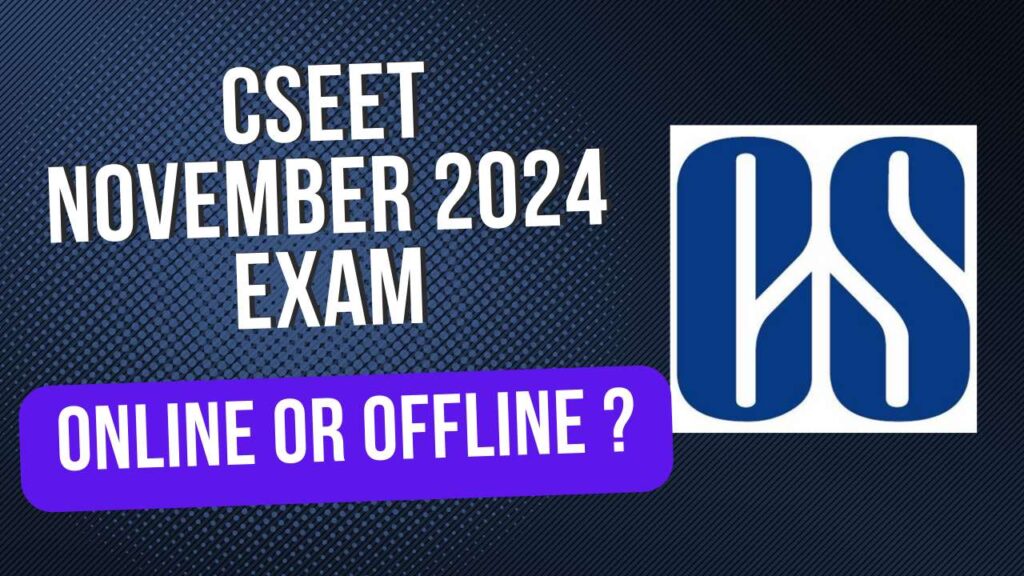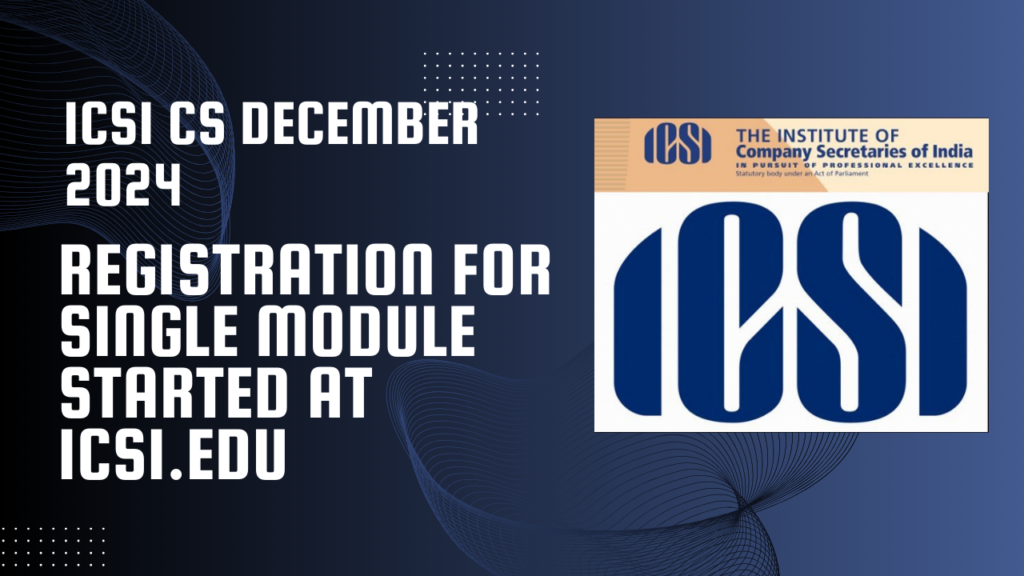The main role of the Company Secretary is to act as a Compliance Officer of the company. Apart from this he has to ensure that the Corporate Governance should remain intact. When it comes to preserving the rules and regulations of Corporate Governance, the Company Secretary has to ensure the protection of the interest of the investors as well.
The Securities laws enhances the efficiency and liquidity in the financial markets including protecting information traders. Furthermore, by protecting information traders, securities regulation represents the highest form of market integrity.
- An outline of Company Secretary Courses and Specialisation- Executive Programme Papers
- An Overview of the subject
- CS Executive Examination Syllabus of this subject
- Objective of introducing this subject in CS Executive course
- Strategy for Preparation
- How to Prepare CS Executive Slaw Study Plan
- Some reference books
On the other hand, Capital markets are important to be understood because they are that part of Indian Financial system which not only finances the economy but also allocates risk, and support economic growth and financial stability in the country. It is also important to understand that Capital markets enable debt issuance, which is a more efficient and less restrictive form of borrowing for corporations.
Considering all the importance which this subject holds for any professional student, this subject becomes one of the most important subject of CS Executive examination. It is the sixth subject of the Module 2 of CS Executive. As we know that CS Executive is the second stage of the professional course of Company Secretary. The executive stage is basically designed to inculcate skills and competence of executive program passed students.
The reason for inclusion of this important subject in the curriculum is to impart practical understanding of these important financial concepts to the students regarding provisions and applicability of Securities Laws and impact of working of capital markets on the economy of the country.
An outline of Company Secretary Courses and Specialisation- Executive Programme Papers
There are 8 papers divided into 2 Modules in CS Executive Programme (wef. 01.03.2018)
| MODULE 1 (4papers) | MODULE 2 (4 papers) |
|---|---|
| 1. Jurisprudence, Interpretation & General Laws | 5. Corporate & Management Accounting |
| 2. Company Law | 6.Securities Laws & Capital Markets |
| 3. Setting Up Of Business Entities And Closure | 7.Economic, Business And Commercial Laws |
| 4. Tax Laws | 8. Financial And Strategic Management |
An Overview of the subject
The subject is divided into two parts i.e. Securities Laws and Capital Markets. Part I of the subject deals with Securities Laws and related Regulations and Part II deals with Capital Markets and intermediaries
| Paper | Coverage |
|---|---|
| Securities Laws and Capital Market | To provide expert knowledge in the legislations, rules and regulations governing the entities listed on the stock exchanges. To provide the basic understanding of the working of capital markets in India |
CS Executive Examination Syllabus of this subject
Before planning the study curriculum, first of all we should know the contents of the subject. Following is the arrangement Of Study Lessons in this subject
| Study Lessons Part 1 – Securities Laws (70 Marks) | |
|---|---|
| Module-II Paper-6 Securities Laws and Capital Market | 1. Securities Contracts (Regulation) Act, 1956 2. Securities and Exchange Board of India Act, 1992 3. Depositories Act, 1996 4. An Overview of SEBI (Issue of Capital and Disclosure Requirements) Regulations, 2009 5. An Overview of SEBI (Listing Obligations and Disclosure Requirements) Regulations, 2015 6. An Overview of SEBI (Substantial Acquisition of Shares and Takeovers) Regulations, 2011 7. SEBI (Buyback of Securities) Regulations, 1998 8. SEBI (Delisting of Equity Shares) Regulations, 2009 9. An Overview of SEBI (Share Based Employee Benefits) Regulations, 2014 10. An Overview of SEBI (Issue of Sweat Equity) Regulations, 2002. 11. SEBI (Prohibition of Insider Trading) Regulations, 2015 12. Mutual Funds 13. Collective Investment Schemes 14. SEBI (Ombudsman) Regulations, 2003 |
| Study Lessons Part 1I – Capital Markets and Intermediaries(30 Marks) | |
| 15. Structure of Capital Market 16. Securities Market Intermediaries |
Objective of introducing this subject in CS Executive course
Considering that the Securities market is the core area of practice for the Company Secretaries, it becomes very important for the professionals to be fully aware of various laws and regulations, both for practice and guiding the Board of Directors on securities laws related matters. The securities markets are vital to the growth, development and strength of market economies and the maturity of an economy are decided based on the robustness of securities market of an economy. The securities market is governed by various regulations enacted in the course of time by the competent legislative body and regulating bodies. In the era of plethora of legislations, rules, and regulations, a Company Secretary professional is expected to be well aware of these rules and principles, as these compliances make the functioning of the markets smooth while violations leads to severe penalties.
Strategy for Preparation
- Understanding the fundamentals of the subject-First of all the students should understand the basic provisions of the act.
- Understanding the requirements of the subject-First of all the students should understand the requirement of the paper and subject thoroughly.
- Dynamic subject-At the same time the student needs to remember that it is not a static subject like accounts or costing rather it involves a lot of dynamic elements because the regulations keeps on changing from time to time.
- Analytical Skills required- It is important for the students to concentrate more on analytical skills rather theoretical concepts
- Referring recent case studies as posted on the website of the SEBI-While preparing for the examination, the student is required to refer relevant and important recent examples from current affairs happening in and around business.
- Regular Updation- Update yourself about all the relevant circulars, clarifications, notifications, etc. issued by the MCA, SEBI, NSE, BSE, etc on or before six months prior to the date of the respective examinations.
- Fundamental topics of subject-Last but not the least, the students need to be aware of the fundamentals and key provisions, amendments to the Acts, Powers, features, and functions of the provisions of the acts, especially before the examination.
Now we will make a framework for studying and preparing this subject, chapter wise.
| Important topics to be covered | |
|---|---|
| Chapter 1Securities Contracts (Regulation) Act, 1956 | Registration of stock exchange(s); Powers of Central Government in various cases; Powers of Recognized Stock Exchange to make rules and bye-laws; Powers of SEBI under SCRA; Clearing Corporation and its functions; Issue of securities to the Public; Delisting of securities from recognized stock exchange; Procedure to file an appeal to Securities appellate tribunal; Various penalties for various offences as prescribed under the Act; and Requirements for listing of securities with recognized stock exchange; |
| Chapter 2 Securities and Exchange Board of India Act, 1992 | Powers and functions of SEBI; Conditions for offer of collective investment scheme by a company; Investigations procedure by the SEBI; Various penalties imposed by the SEBI for various failures, default, non-disclosure and other offenses; Procedure & Conditions for registration of an intermediaries; and Formation of the Securities Appellant Tribunal, its compositions, tenure, requirements for appeal and its powers. |
| Chapter 3 Depositories Act, 1996 | Basics of depository and its benefits; Models of depository and its functions; Process of dematerialization and rematerialisation of securities; Securities which are eligible to be issue in depository mode; The concept of fungibility and rights of depository & beneficial owner; The applicability of SEBI (Depositories and Participants) Regulations, 2018; Audit of depositories i.e., Internal Audit and Concurrent Audit by a Practicing Company Secretary; and Audit of Reconciliation of Share Capital by a Practicing Company Secretary |
| Chapter 4 An Overview of SEBI (Issue of Capital and Disclosure Requirements) Regulations,2018 | Types of Issue; Concept of draft offer document, letter of offer and red herring prospectus; Contribution of promoters in case of Public Issue & exemption from the same; Concept of underwriting, Opening of Public issue & Minimum Subscription; Minimum number of share applications and application money; Pre-issue advertisement & Post issue advertisement; Restriction on further issue of capital & Reservation on competitive basis; and Detailed procedure for issue of securities by companies |
| Chapter 5 An Overview of SEBI (Listing Obligations and Disclosure Requirements)Regulations, 2015 | Obligations of listed entities; Various compliances & disclosures required to be made by the listed entities; Types of Board committee under listing regulations; Concept of Vigil Mechanism and Related Party Transactions; and Role of Company Secretary as a compliance officer as per listing regulations |
| Chapter 6 An Overview of SEBI (Substantial Acquisition of Shares and Takeovers)Regulations, 2011 | Triggering point while making an open offer by an acquirer; Open offer to the public; Concept of Public announcement i.e., timing of Public announcement & Detailed Public announcement; Procedural compliances related to letter of offer, opening of the offer etc.; Obligations of the acquirer and target company; Various disclosures requirements; Exemptions available to the acquirer in case of open offer; and Practical aspects of takeover |
| Chapter 7 SEBI (Buy-Back of Securities) Regulations, 2018 | Methods of buy back of securities; Procedure for buyback of securities from existing or security shareholders, from open market and from odd-lot holders; Compliances related to extinguishing of bought back securities; and Obligations of the company and Merchant Banker |
| Chapter 8 SEBI (Delisting of Equity Shares) Regulations, 2009 | Agencies involved in delisting process and their Role; Concept of voluntary delisting and its different modes; Comprehensive procedure for delisting of equity shares from all the stock exchanges or few stock exchange; Meaning of small companies and how it can voluntary delist its equity shares; Compulsory delisting of shares and its detailed procedure; and Special powers of the recognized stock exchange in case of delisting of equity shares. |
| Chapter 9 SEBI (Share Based Employee Benefits) Regulations, 2014 – An Overview | Understand the provisions of Companies Act, 2013 with respect to Employee stock option; Specify the companies eligible to issue ESOP/ESPS/GEBS/RBS/SARS; Familiarize with the types of schemes offered by the listed company; Understand the full procedure for issue of fresh shares for ESOPs; Determine the implementation of scheme through trust; Understand the concept of compensation committee & cases where shareholders’ approval required; Explain the administration of specific schemes like ESOS/ESPS/GEBS/RBS/SARS; Specify the provisions of SEBI LODR which is applicable to ESOP/ESPS; and Role of company secretary in issue of ESOP/ESPS/GEBS/RBS/SARS) |
| Chapter 10 SEBI (Issue of Sweat Equity) Regulations, 2002 – An Overview | Correlate the provision of Companies Act with SEBI Issue of Sweat Equity Regulations; Specify the eligible person for issue of sweat equity shares; Understand the requirement of shareholders’ approval by passing special resolution; Determine the pricing of sweat equity shares and its accounting treatment & valuation IPRs; and Enumerate the ceiling on Managerial remuneration & Lock-in of sweat equity shares. |
| Chapter 11 SEBI (Prohibition of Insider Trading) Regulations, 2015 | Understand the important definitions i.e., Connected person, Person deemed to be connected person,Insider, Unpublished price sensitive information; Explain the information/communication related to company which shall not be provide to any person; Elucidate trading when in possession of Unpublished price sensitive information; Understand the concept of trading plans; Specify the disclosures of trading and interest by certain persons; Familiarize with the code of Fair disclosure and conduct; and Understand the various penalties for violations under SEBI Act. |
| Chapter 12 Mutual Funds | Familiarize with the structure of mutual fund and understand the risks associated with Mutual fund; Specify the types of Mutual fund in India; Determine the key players of the Mutual Fund; Understand the concept of Sponsor, Asset Management Company (AMC), Trustee and Unit Holder; Meaning of Net Asset Value, Expense Ratio and Holding Period Return; and Correlate the compliances of SEBI Mutual Funds Regulations with SEBI LODR. |
| Chapter 13 Collective Investment Schemes | Understand the business activities which is restrictions under CIS regulation; Understand the compliances related to quarterly report of CIS; Determine the obligations of collective investment management company(CIMC), trustee; Understand the conditions of the termination of the agreement with the CIMC; and Specify the procedure for allotment, transfer of units and winding up of scheme |
| Chapter 14 SEBI (Ombudsman) Regulations, 2003 | How to file a complaint in SCORES site; When a case can be referred for arbitration; Concept of Ombudsman and its powers & functions; Procedure for redressal of grievance; and Concept of Informal Guidance |
| Chapter 15 Structure of Capital Market | Different categories of Investment Institutions in detail; Various Capital Markets Instruments; Book building, Application Supported by Block Amount, Green Shoe Option etc.; and Concept of Secondary Market & its trading mechanism etc |
| Chapter 16 Securities Market Intermediaries | Various types of intermediaries operating in Capital Market and its role & responsibility, Internal Audit of Intermediaries by Company Secretary in Practice |
Before reading further check out these posts:
How to Prepare CS Executive Slaw Study Plan
1. Ensure complete understanding of the CS Study Material
2. Start with a proper Time Table
3. Setting targets
4. Analysing the actual performance every week
5. Never Do following-
- Never go with selective topics
- Never refer old study material
- Try to finish your revision beforehand
Some reference books
The study material released by ICSI is enough for CS Executive Exam preparation. Still students can refer following books for preparation of CS Executive Exam which can help them in proper update and practice. These books have been taken as a reference from ICSI also.
1. Sanjeev Aggarwal : Guide to Indian Capital Market; Bharat Law House,
2. M.Y. Khan : Indian Financial Systems; Tata McGraw Hill,
3. S. Suryanarayanan & : SEBI – Law, Practice & Procedure; Commercial Law Publishers (India)
4. Taxmann : SEBI Manual
5. Shashi K Gupta : Financial Institutions and Markets ; Kalyani Publishers,


















